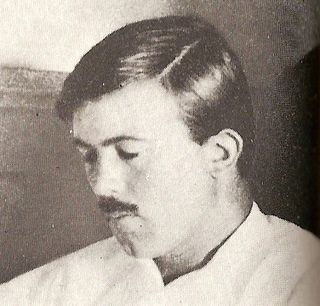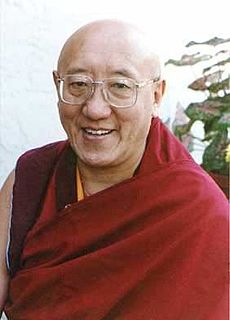A Quote by D.T. Suzuki
We do not realize that as soon as our thoughts cease and all attempts at forming ideas are forgotten the Buddha reveals himself before us.
Related Quotes
The basics teachings of Buddha are about understanding what we are, who we are, why we are. When we begin to realize what we are, who we are, why we are, then we begin to realize what we are not, who we are not, why we are not. We begin to realize that we don't have basic, substantial, solid, fundamental ground that we can exert anymore. We begin to realize that our ideas of security and our concept of freedom have been purely phantom experiences.
Teach your scholar to observe the phenomena of nature; you will soon rouse his curiosity, but if you would have it grow, do not be in too great a hurry to satisfy this curiosity. Put the problems before him and let him solve them himself. Let him know nothing because you have told him, but because he has learnt it for himself. Let him not be taught science, let him discover it. If ever you substitute authority for reason he will cease to reason; he will be a mere plaything of other people's thoughts.
When the Cambrian measures were forming, They promised perpetual peace. They swore, if we gave Them our weapons, that the wars of the tribes would cease. But when we disarmed They sold us, and delivered us, bound, to our foe, And the Gods of the Copybook Headings said: "Stick to the Devil you know."
How unutterably sweet is the knowledge that our Heavenly Father knows us completely. No talebearer can inform on us; no enemy can make an accusation stick; no forgotten skeleton can come tumbling out of some hidden closet to abash us and expose out past; no unsuspected weakness in our characters can come to light to turn God away from us, since He knew us utterly before we knew him and called us to Himself in the full knowledge of everything that was against us.
As soon as error is corrected, it is important that the error be forgotten and only the successful attempts be remembered. Errors, mistakes, and humiliations are all necessary steps in the learning process. Once they have served their purpose, they should be forgotten. If we constantly dwell upon the errors, then the error or failure becomes the goal.
Concerning [postmodern] ideas, let us not mince words. The ideas are profoundly dangerous. They subvert our civilization by denying that truth is found by conscientious attempts accurately to portray a reality that exists independently of our perception or attitudes or other attributes such as race, ethnicity, sex or class.



































